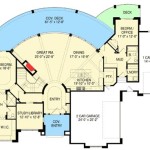A House Saving Plan is a financial strategy designed to help individuals accumulate funds specifically for the purchase of a home. It involves setting financial goals, creating a budget, and implementing a savings plan to reach the target amount. A common example is a High Yield Savings Account, where individuals allocate a portion of their income regularly and earn interest on their savings over time.
The primary objective of a House Saving Plan is to mitigate the financial burden associated with purchasing a home. By establishing a dedicated savings plan, individuals can avoid the need for excessive debt, high-interest mortgages, or other financial risks that can accompany homeownership. Additionally, a House Saving Plan enables individuals to build equity in their home sooner, leading to financial security and long-term savings.
The following sections of this article will delve into the various aspects of a House Saving Plan, including savings strategies, investment options, and financial planning techniques. By understanding these concepts, individuals can effectively plan and execute their House Saving Plan to achieve their dream of homeownership.
To create an effective House Saving Plan, consider these eight key pointers:
- Set Savings Goals
- Create a Budget
- Automate Savings
- Explore Investments
- Maximize Tax Benefits
- Consider Down Payment Assistance
- Stay Disciplined
- Seek Professional Advice
By implementing these strategies, you can increase your chances of successfully saving for your dream home.
Set Savings Goals
Establishing clear and achievable savings goals is the foundation of a successful House Saving Plan. Determine the total amount you need to save for your down payment, closing costs, and other associated expenses. Consider your current financial situation, income, and debt obligations to set realistic goals.
- Define Your Target Purchase Price: Research the housing market in your desired location to estimate the average home price. This will give you an idea of the total amount you need to save for.
- Calculate the Down Payment: Aim to save at least 20% of the purchase price for your down payment. A larger down payment can reduce your monthly mortgage payments and save you money on interest in the long run.
- Estimate Closing Costs: Factor in additional expenses associated with buying a home, such as closing costs (typically 2-5% of the purchase price), legal fees, appraisal fees, and other miscellaneous expenses.
- Set a Savings Timeline: Determine how long you want to take to save for your home. A shorter timeline may require more aggressive saving, while a longer timeline can give you more flexibility.
Once you have established your savings goals, break them down into smaller, monthly targets. This will make the task of saving seem less daunting and help you stay on track.
Create a Budget
Creating a budget is essential for managing your finances and ensuring that you have sufficient funds to save for your home. A budget outlines your income and expenses, helping you identify areas where you can reduce spending and allocate more towards savings.
- Track Your Income: Start by tracking all sources of income, including your salary, wages, investments, and any other regular payments. This will give you a clear picture of how much money you have coming in each month.
- Categorize Your Expenses: Next, categorize your expenses into fixed and variable costs. Fixed costs are those that remain relatively constant each month, such as rent or mortgage payments, car payments, and insurance premiums. Variable costs, on the other hand, can fluctuate, such as groceries, entertainment, and dining out.
- Identify Unnecessary Expenses: Once you have categorized your expenses, review them carefully and identify any unnecessary or discretionary spending. This could include subscriptions, memberships, or impulse purchases that you can cut back on to save more.
- Adjust Your Budget: Based on your income and expenses, adjust your budget to ensure that you are allocating sufficient funds towards your House Saving Plan. This may involve reducing unnecessary expenses, increasing your income through a side hustle or part-time job, or seeking professional financial advice.
By creating and adhering to a budget, you can gain control over your finances and prioritize your saving goals. Remember to review and adjust your budget regularly to ensure that it aligns with your changing financial circumstances.
Automate Savings
Automating your savings is a powerful tool for consistently and effortlessly contributing towards your House Saving Plan. By setting up automatic transfers from your checking account to your savings account on a regular basis, you remove the temptation to spend those funds and ensure that you stay on track with your savings goals.
To automate your savings, follow these steps:
- Choose a Savings Account: Select a dedicated savings account for your House Saving Plan. Consider factors such as interest rates, fees, and accessibility when choosing an account.
- Set Up Automatic Transfers: Contact your bank or credit union to set up automatic transfers from your checking account to your savings account. Determine the amount and frequency of these transfers based on your budget and savings goals.
- Schedule Recurring Transfers: Choose a specific day or days of the month for the automatic transfers to occur. Aligning the transfers with your payday can ensure that you are saving as soon as you receive your income.
- Monitor Your Progress: Regularly review your savings account balance and track your progress towards your savings goals. Adjust the amount or frequency of your automatic transfers as needed to stay on track.
Automating your savings removes the need for willpower or self-control. By setting it up once, you can ensure that you are consistently saving for your dream home, even during times when you may be tempted to spend more.
Additionally, automating your savings can help you take advantage of compound interest. When you save regularly over time, the interest earned on your savings is reinvested, leading to exponential growth in the long run. This can significantly boost your savings and help you reach your goal faster.
Explore Investments
In addition to saving regularly, exploring investment options can potentially accelerate the growth of your House Saving Plan. However, it is important to remember that investing involves risk, and the value of your investments can fluctuate.
- High-Yield Savings Accounts: These accounts offer higher interest rates than traditional savings accounts, providing a safe and steady return on your savings. While the returns may be modest, they can add up over time, especially if you are saving consistently.
- Certificates of Deposit (CDs): CDs are time deposits that offer fixed interest rates for a specific period, typically ranging from a few months to several years. They provide a guaranteed return on your investment, assuming you hold the CD until maturity. However, early withdrawal penalties may apply.
- Money Market Accounts: Money market accounts combine features of savings accounts and money market mutual funds. They offer higher interest rates than traditional savings accounts but may have stricter withdrawal limits or require a minimum balance.
- Real Estate Investment Trusts (REITs): REITs are companies that invest in real estate properties, such as apartments, office buildings, and shopping centers. They offer a way to invest in real estate without directly purchasing a property. REITs typically pay dividends to shareholders, providing a potential source of income.
It is important to note that the returns on these investments are not guaranteed and can vary depending on market conditions. Before making any investment decisions, consider your risk tolerance, investment horizon, and financial goals. Consult with a financial advisor if necessary to determine the most suitable investment options for your House Saving Plan.
Maximize Tax Benefits
One of the most effective ways to enhance your House Saving Plan is to maximize tax benefits related to homeownership. There are several tax deductions and credits available to homeowners, which can significantly reduce your tax liability and free up more funds for saving.
Mortgage Interest Deduction: Homeowners can deduct the interest paid on their mortgage up to a certain limit. This deduction can lower your taxable income, resulting in a reduction in the amount of income tax you owe. The mortgage interest deduction is phased out for higher-income earners, but it can still provide substantial tax savings for many homeowners.
Property Tax Deduction: Property taxes are another deductible expense for homeowners. This deduction reduces your taxable income and can further lower your tax liability. The property tax deduction is not subject to income limits, making it beneficial for homeowners of all income levels.
Home Equity Loan Interest Deduction: If you take out a home equity loan or line of credit to finance home improvements, the interest paid on that loan may also be tax-deductible. This deduction can provide additional tax savings and help you finance home improvements while reducing your tax burden.
In addition to these deductions, homeowners may also be eligible for tax credits, such as the First-Time Homebuyer Credit, which provides a tax credit to first-time homebuyers who meet certain income requirements. By taking advantage of these tax benefits, homeowners can reduce their tax liability and increase their savings towards their House Saving Plan.
Consider Down Payment Assistance
Down payment assistance programs can provide financial assistance to homebuyers who may not have the full amount of funds required for a down payment. These programs can significantly reduce the upfront costs of homeownership and make it more accessible for individuals and families.
- Government-Sponsored Programs: The U.S. Department of Housing and Urban Development (HUD) offers various down payment assistance programs, such as FHA loans and VA loans. These programs have income limits and specific eligibility requirements, but they can provide grants, low-interest loans, or other forms of assistance to qualified homebuyers.
- State and Local Programs: Many states and localities offer their own down payment assistance programs. These programs vary in terms of eligibility criteria, income limits, and the amount of assistance provided. Check with your state or local housing agency to see if you qualify for any of these programs.
- Nonprofit Organizations: Several nonprofit organizations provide down payment assistance to low- to moderate-income homebuyers. These organizations may offer grants, loans, or other forms of assistance based on the applicant’s financial need and circumstances.
- Employer-Assisted Programs: Some employers offer down payment assistance programs to their employees as a benefit. These programs can provide matching funds, grants, or other forms of assistance to help employees purchase a home.
Down payment assistance programs can be a valuable tool for homebuyers who are struggling to save for a down payment. By researching and exploring these programs, you may be able to reduce the upfront costs of homeownership and achieve your dream of owning a home sooner.
Stay Disciplined
Maintaining discipline is essential for the success of your House Saving Plan. Here are four key points to consider:
- Set Realistic Goals: Avoid setting overly ambitious savings goals that may discourage you or lead to unsustainable spending habits. Instead, establish realistic and achievable goals that you can maintain over time.
- Automate Savings: As discussed earlier, automating your savings through electronic transfers can help you stay on track and avoid the temptation to spend those funds. Set up automatic transfers from your checking account to your savings account on a regular basis.
- Monitor Your Progress: Regularly review your savings account balance and track your progress towards your goals. This will help you stay motivated and make adjustments if necessary. Consider using budgeting apps or spreadsheets to monitor your expenses and savings.
- Avoid Unnecessary Debt: High-interest debt can derail your House Saving Plan by reducing the amount of money you have available for saving. Prioritize paying off high-interest debts, such as credit card balances, before allocating funds towards your savings.
Staying disciplined with your savings plan requires a combination of planning, automation, and self-control. By following these tips, you can increase your chances of success and achieve your homeownership goals.
Seek Professional Advice
Consulting with a financial advisor or mortgage professional can be invaluable for developing and executing a successful House Saving Plan. These experts can provide personalized guidance based on your unique financial situation and goals. They can help you:
- Create a Customized Savings Plan: A financial advisor can analyze your income, expenses, and financial goals to create a tailored savings plan that meets your specific needs and timeline.
- Recommend Investment Options: Mortgage professionals and financial advisors can provide guidance on various investment options suitable for your House Saving Plan, considering your risk tolerance and investment horizon.
- Explore Down Payment Assistance Programs: They can assist you in researching and identifying down payment assistance programs that you may be eligible for, helping you reduce the upfront costs of homeownership.
- Negotiate Mortgage Terms: Mortgage professionals can help you negotiate favorable mortgage terms, such as interest rates and loan programs, potentially saving you thousands of dollars over the life of your loan.
- Prepare for Closing Costs: They can provide you with a detailed estimate of closing costs associated with purchasing a home, ensuring that you have sufficient funds available.
- Address Tax Implications: Financial advisors can help you understand the tax implications of homeownership, including deductions and credits, to maximize your tax savings.
Seeking professional advice can significantly enhance your chances of achieving your homeownership goals. By working with qualified experts, you can benefit from their knowledge, experience, and personalized guidance, enabling you to make informed decisions and navigate the complexities of the homebuying process.

![How to Use A Savings Tracker [+ Free Printable] ⋆ 2020](https://i2.wp.com/www.lifescarousel.com/wp-content/uploads/2019/05/House-Deposit-Savings-Plan-655x1024.png)








Related Posts








